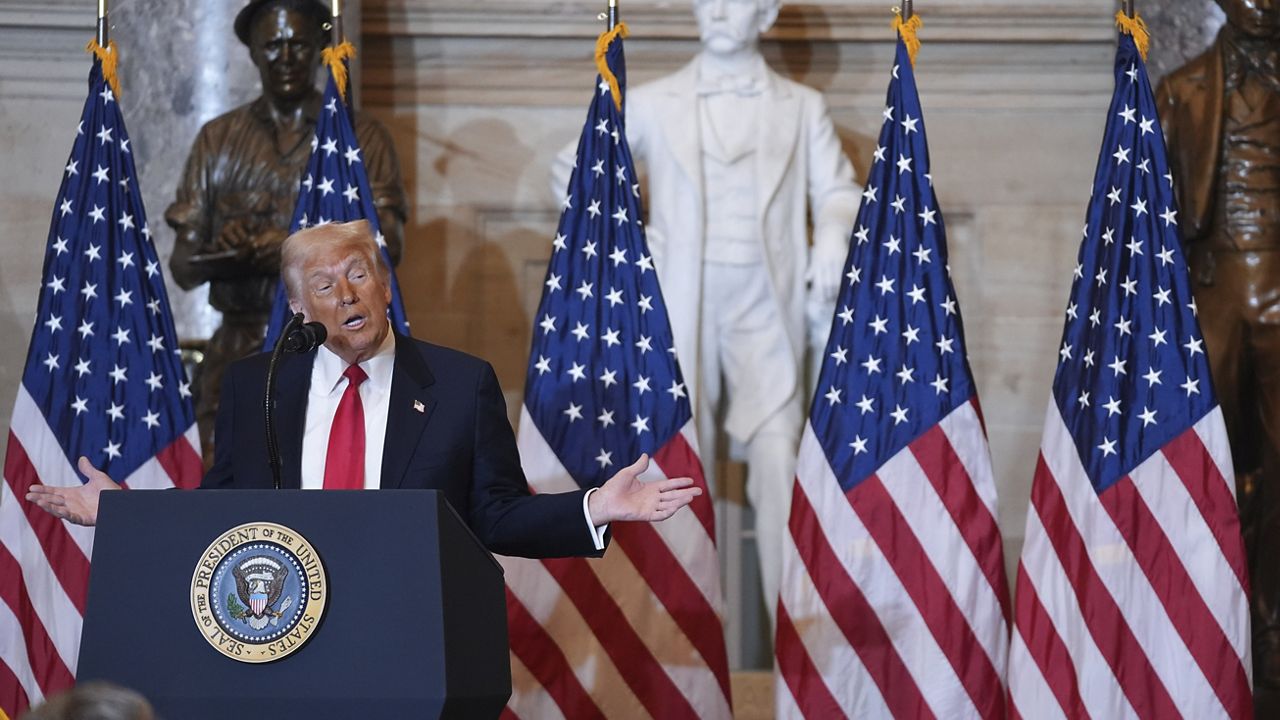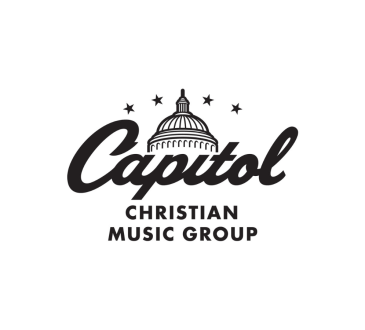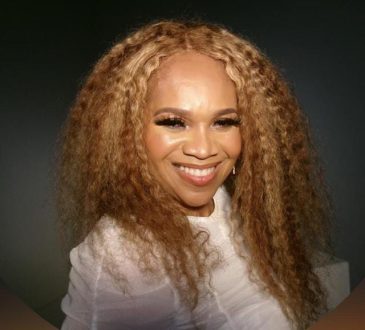Trump Speaks At National Prayer Breakfast: To Creates Task Force To Root Out ‘Anti-Christian Bias’

In a dramatic and politically charged announcement, President Donald Trump declared his intent to eradicate what he calls “anti-Christian bias” in the United States. With the formation of a dedicated task force, led by Attorney General Pam Bondi, the administration aims to root out perceived discrimination against Christians, promising to bring faith back to the heart of American governance.
The Battle for Religious Freedom or a Political Maneuver?
Speaking at events surrounding the National Prayer Breakfast in Washington, Trump made his stance clear: “We will immediately halt all forms of anti-Christian targeting and discrimination within the federal government, including at the DOJ, the IRS, the FBI—terrible agencies—and others.”
The president’s words come amidst growing concerns among conservative Christian groups that faith-based institutions and individuals have been increasingly sidelined in modern America. However, his critics argue that this move is less about religious freedom and more about political posturing.
Trump Appoints Pam Bondi to Lead New Task Force against Anti-Christian Bias
“The mission of this task force will be to immediately hold all forms of anti-Christian targeting and discrimination within the federal government, including at the DOJ, which was absolutely terrible, the IRS, the FBI, and other agencies,” Trump said.
As reported by Reuters, the president will sign an executive order later on Thursday appointing U.S. Attorney General Pam Bondi to be “the head of a task force – brand new – to eradicate anti-Christian bias.”
With the signing of an executive order, Trump’s new initiative directs the task force to investigate and eliminate what he deems “unlawful policies” that suppress Christianity within federal institutions. Bondi is also instructed to take decisive legal action against acts of anti-Christian violence and vandalism.
Yet, opposition voices, such as Rachel Laser, president of Americans United for Separation of Church and State, warn that this move could justify religious-based discrimination rather than protect religious liberty. “Rather than protecting religious beliefs, this task force will misuse religious freedom to justify bigotry, discrimination, and the subversion of our civil rights laws,” she stated.
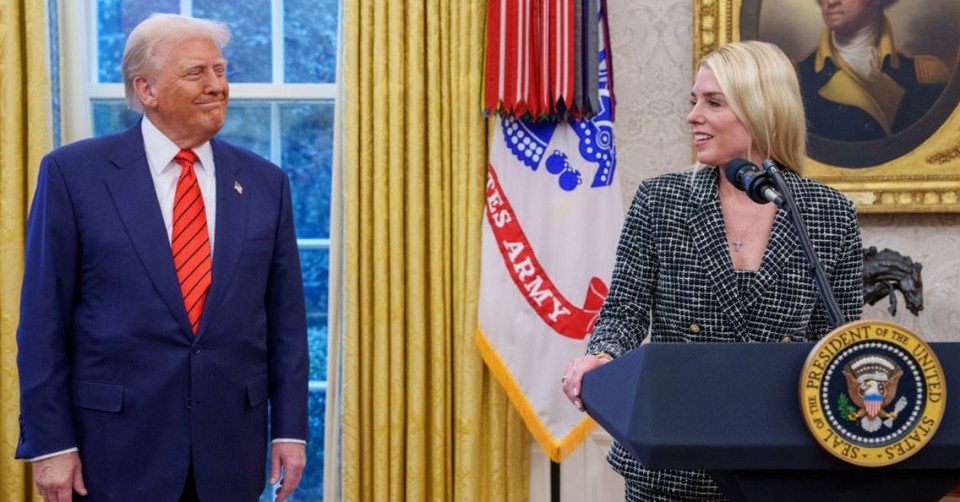
Trump’s Faith Evolution: A Divine Encounter?
At the heart of Trump’s renewed religious zeal is what he calls a life-altering experience: surviving an assassination attempt in Butler, Pennsylvania.
“It changed something in me,” he reflected. “I believed in God before, but I feel much more strongly about it now. Something happened.” He went on to credit divine intervention for saving his life, a sentiment that resonated deeply with many faith leaders in attendance.
However, critics argue that his newfound faith commitment is a calculated move to solidify his evangelical support base ahead of the next election.
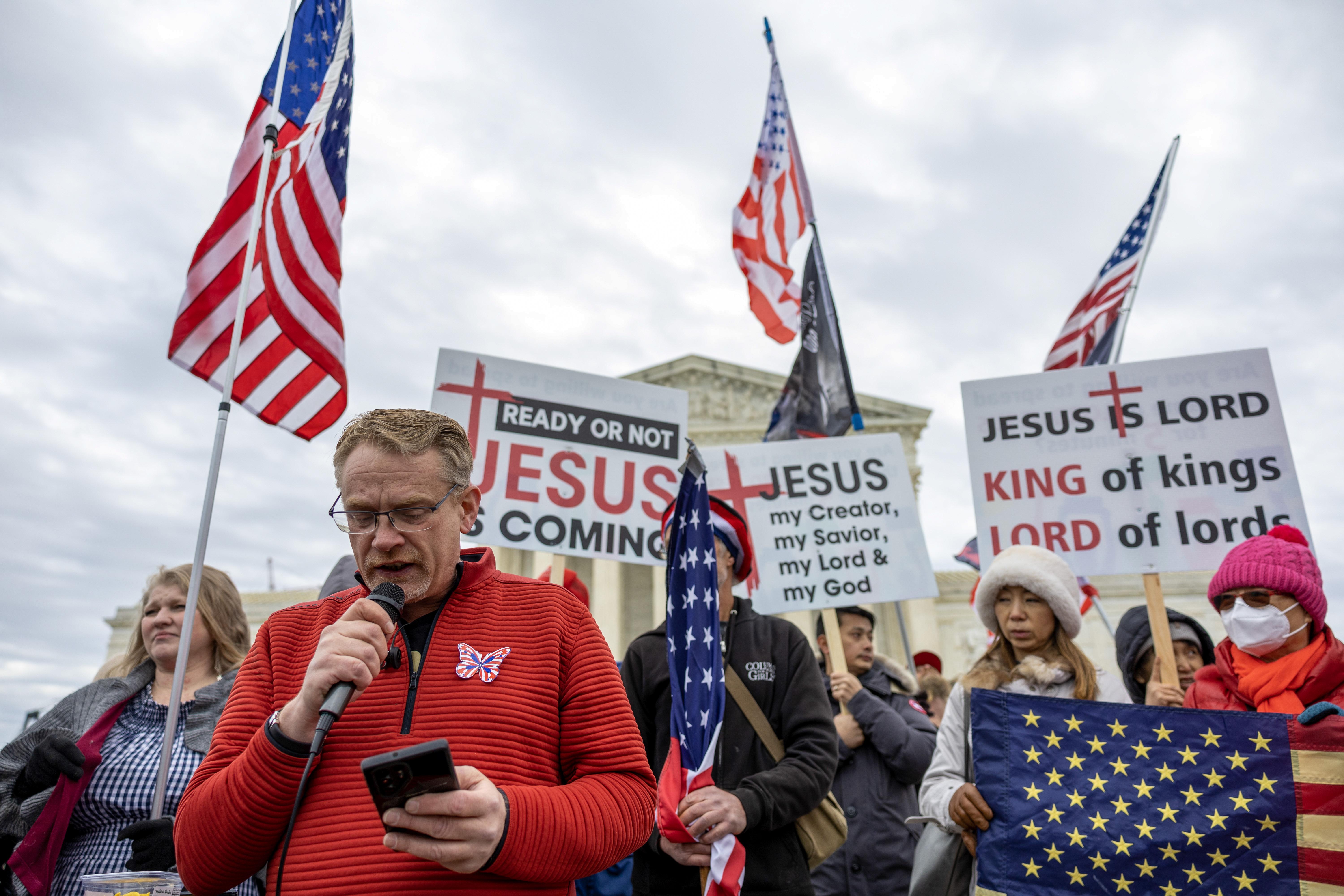
Faith in Government: A Precarious Balance
The intersection of religion and governance has long been a point of contention in American politics. Trump’s establishment of a White House faith office, now led by influential pastor Paula White-Cain, underscores his effort to bridge politics and spirituality. White-Cain, a charismatic faith leader and early Trump supporter, has been lauded as “the greatest champion” of faith in politics.
While some applaud these measures as necessary steps to protect Christian values in a rapidly changing America, others fear that such actions blur the constitutional line between church and state.
A Nation Divided on Religious Liberty
Reactions to Trump’s latest move remain starkly divided. Conservative Christian leaders like Kelly Shackelford of the First Liberty Institute hailed the initiative: “All Americans should be free to exercise their faith without government intrusion in school, in the military, in the workplace, and in the public square.”
Conversely, progressive faith leaders, such as the Rev. Paul Brandeis Raushenbush, accused the administration of using faith as a tool for division. “When a majority begins to claim persecution, that is often a license for attacks on minorities,” he cautioned.
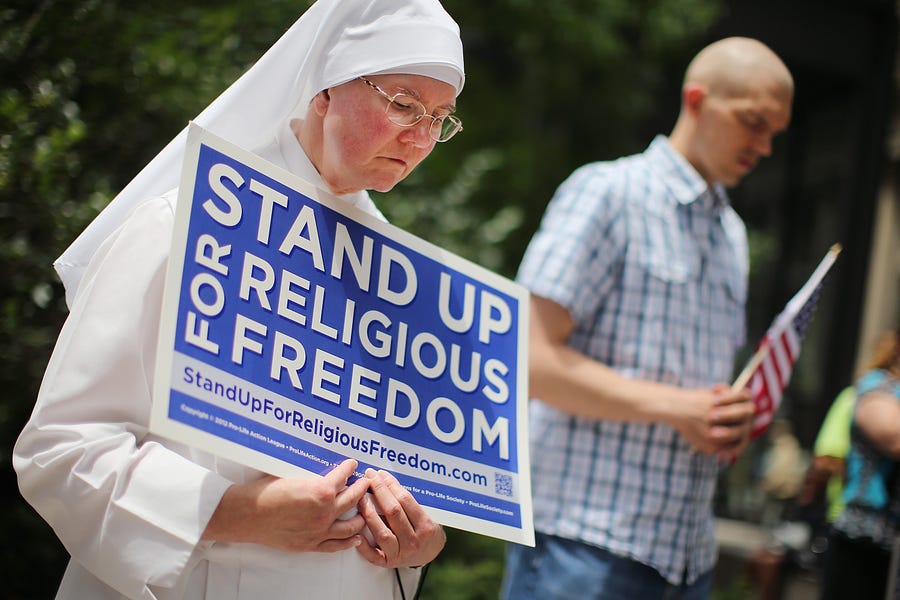
The Road Ahead: A Test of True Faith
As the administration moves forward with its faith-based initiatives, the real test lies in whether these efforts will genuinely uphold religious freedoms or become a political weapon. Trump’s call to “bring God back” into American life echoes through the hearts of his supporters, but for skeptics, the question remains: is this a righteous mission, or merely a strategic move in the battle for political power?
One thing is certain—faith and politics in America are on a collision course, and the nation is watching closely to see where the lines will be drawn.

